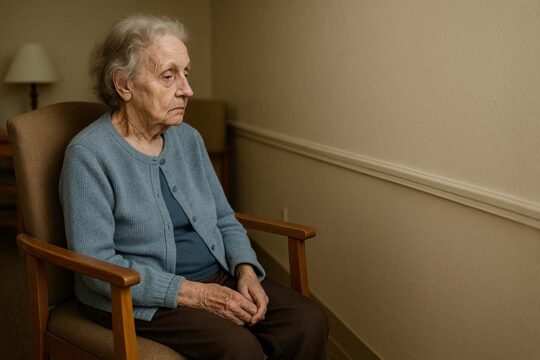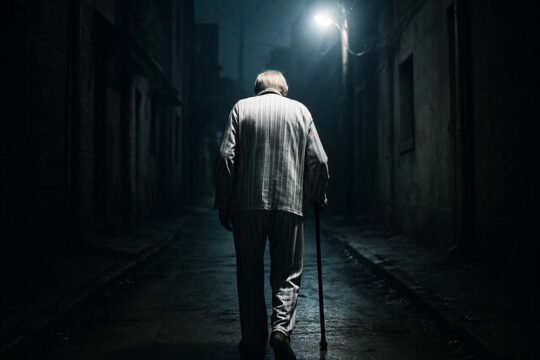
Sudden Mood Swings in Elderly
Sudden Mood Swings in Elderly: What Does It Mean?
Seniors often have mood swings and sudden changes in how they act, which can be hard for family caregivers to handle. As a caring family member, you may be wondering if it is normal for seniors to have mood swings or if these changes in behavior are serious. While it’s only natural to expect someone’s personality to evolve as they grow older, mood changes can indicate a larger problem and need attention. Learn the signs to watch for and how to deal with them below.
What are the signs of mood swings in elderly?
Mood swings often have hard-to-spot signs and can even look like other problems. Even though it is good to look for these signs, you should not try to figure out what is wrong with your elderly parent yourself. Instead, you should take them to a doctor who can figure out what is wrong and treat it. Most of the time, these symptoms are signs of a bigger problem that needs care and direction from a doctor. Look at the most common signs of changing moods:
Depression
An older person may be depressed if, for more than two weeks, he or she has felt sad, down, or miserable most of the time or has lost interest or pleasure in most of his or her usual activities and, like with anxiety, or other signs of low mood. However, it is important to remember that everyone has some of these symptoms sometimes, which may not mean the person is depressed.
In the same way, not everyone who is depressed will have all of these signs. People who are older and have depression tend to have more physical symptoms than people who are younger and have depression. So an older person is more likely to go to their doctor with complaints about their body and trouble sleeping than with complaints about being sad or having a bad mood.
When older people talk about their depression, they may also use a different language, such as their nerves or sadness.
Some symptoms to watch for include:
- – Pessimism
- – Worthlessness
- – Helplessness
- – Irritability
- – Low Energy
- – Sleep problems
- – Appetite changes
- – Persistent aches or pains
Anxiety
Common stressful life events for older adults, like a recent death in the family or of a friend or a long-term illness, can make it more likely that an older person will develop an anxiety disorder. Moreover, older people’s anxiety symptoms are not always easy to spot because they often come on slowly. However, when older people have anxiety, they often have several symptoms from the following groups:
Watch for these signs of anxiety in your elderly parent:
- – Feeling restless
- – Nervousness
- – Chronic fatigue
- – Trouble focusing
- – Angry outbursts
- – Trouble sleeping
- – Dizziness
- – Panicky
- – Digestion issues
- – Headache
- – Confusion
- – Irrational thoughts
Aggression
Seniors sometimes get angry at their home caregivers when they are frustrated. This could be by constant pain, getting old, having memory problems, losing loved ones, or not being able to take care of their own needs. They may act aggressively because something in their environment is threatening or uncomfortable or because they are hungry or thirsty and do not know how to say what they want to say.
It is important to remember that clients can sometimes just be mad at themselves. For example, they can get confused if you ask them too many questions at once, or they can get angry if you give them hard-to-understand instructions. People have different ways of dealing with frustration, but there are some signs to look out for:
- – Pacing
- – Restlessness
- – Clenched fists
- – Louder speech
- – Swearing
- – Insulting
- – Threats of violence.
Impulsive Behavior
Your loved one may have been polite and self-controlled when they were younger, but their brain function may change as they age. Age can cause them to act in strange ways that need to be checked out by a doctor and treated. Age-related brain degeneration can make it hard to regulate impulsive behavior. These behaviors can include impulsive reactions to situations. Look for strange behaviors such as:
- – Rudeness
- – Inappropriate comments or gestures
- – Touching oneself or others in an inappropriate way
- – Asking about or commenting on private, personal matters
- – Cutting in line or taking food off of someone else’s plate
Apathy
Apathy, or a lack of emotion, is one of the most common behavioral changes caused by dementia. Family members may notice and even find it upsetting, but the person with dementia usually is not aware of the change. Apathy is a lack of enthusiasm, interest, or even just a lack of care and interest. This change in behavior could be especially shocking to family members if the person was once full of life and energy.
What causes mood swings in elderly?
If you notice your parent getting more moody and cranky, it may be a sign of something else wrong with them rather than a permanent part of their personality. Here are five reasons why your elderly parent or loved one might be acting out. Possible issues include:
Anxiety and Depression
Elderly parents who recently lost their partner may feel lonely and sad. When a spouse dies, it can be hard to get used to being alone and worrying about how to take care of the house. If your parent stops talking to you, starts crying often, stops eating, or loses weight, you should take her to the doctor for a checkup. If necessary, take them to a mental health professional for an evaluation and treatment.
Dementia and Alzheimer’s Disease
Mood swings, anger, paranoia, and strong feelings can all be signs of dementia, such as Alzheimer’s. If you think a loved one is showing early signs of dementia or cognitive decline, do not hesitate to get them medical help.
As a family caregiver, you should keep an eye out for other important signs of dementia and Alzheimer’s, like trouble communicating, short-term memory loss, trouble remembering details, confusion, trouble focusing, losing things often, and other signs of trouble.
Physical Pain
Mood changes can be caused by several problems with an elderly person’s body. Changes in your loved one’s mood could be caused by a medical condition you may not even be able to see. For example, if they are in pain or frustrated, they may act out in a way you cannot see.
In other cases, a senior’s mood swings could be caused by frustration with how their bodies and lives are changing. Many older people get angry when they realize they can not move as easily as they used to or feel like they are losing some of their independence. If someone you care about is reacting to long-term pain or illness, you should help them see a doctor.
Reactions to Medication or Diet
Many older people take medicine for different health problems, even if it is something they can buy over the counter. However, keep in mind that different medicines can cause side effects, such as changes in attitude and mood. If you notice changes in your senior loved one’s behavior, such as mood swings, look into the medicines and treatments they are taking.
Look for warnings about possible side effects, and do not be afraid to talk to your loved one’s doctor and pharmacist about your worries. Also, keep an eye on your parent to ensure they take their medicines correctly and use them as directed. The wrong use or management of medications can also cause mood swings and changes in behavior.
Isolation or Loneliness
Seniors often feel alone and isolated as they may not be able to see their friends and family as often. In the same way, having trouble driving can make it hard to keep up with social plans. The most important thing to remember is that being alone and not having friends can have many bad effects on older people’s health. Loneliness leads to depression and can even continue on to a long-term illness, and it can also make you forget things over time.
Hormonal Changes
Older women’s hormones fluctuate greatly. Hormones impact mood, energy, sleep, motivation, and so much more. Low estrogen is the main hormonal concern for aged women. Estrogen affects mood and drops dramatically after menopause. Low estrogen levels in menopausal seniors can induce hot flashes, sleeplessness, itching, and mood changes.
How to deal with sudden mood swings in elderly
Friends and relatives sometimes dismiss elderly individuals’ emotional issues as normal. However, mood swings do not have to be the norm for older men or women. Often you or their doctor can find a reason for their mercurial emotions.
Knowing you are there might assist your parent can help a lot. Try to understand what they mean to say, not what they say. Next, identifying the reason for their mood shift will help them discover the correct resources. However, mood issues often occur without explanation and require a visit with their primary care physician. Call Stellar Care today to learn more about mood swings in elderly and what we can do to help you and your parent.
Related Articles
Discover the key differences between retirement homes and assisted living to help you choose the right care for your loved one’s needs.
Learn the risks of leaving a dementia patient alone, legal responsibilities, care strategies, and how to plan for their safety.
Learn why dementia patients wander at night, how to prevent it, and when memory care is the safest option for your loved one in San Diego.
Compare memory care and assisted living, from services and costs to safety and staffing, to find the right senior care in San Diego.



